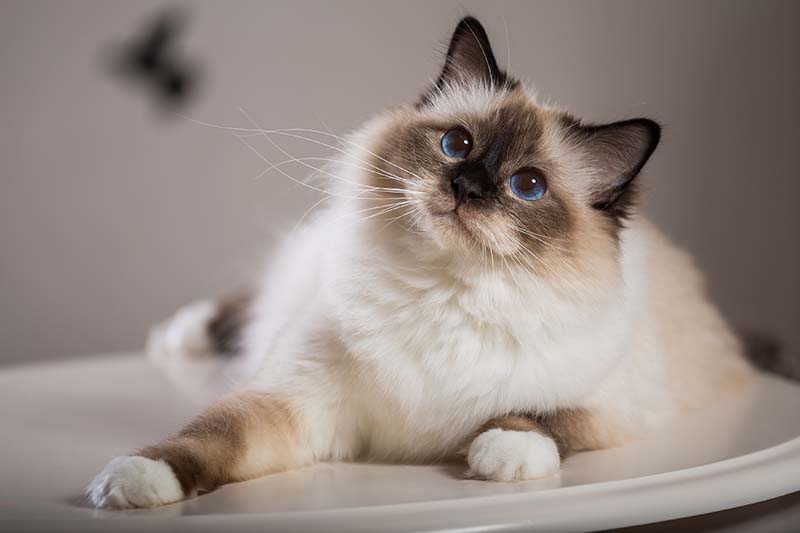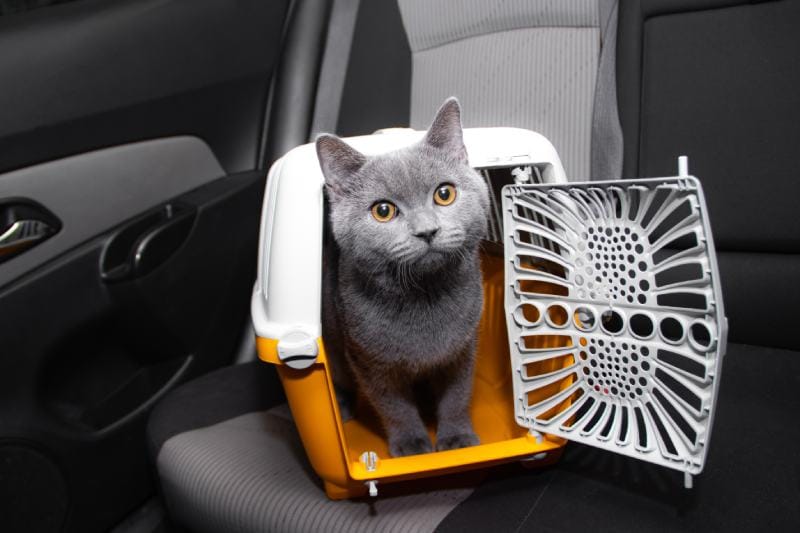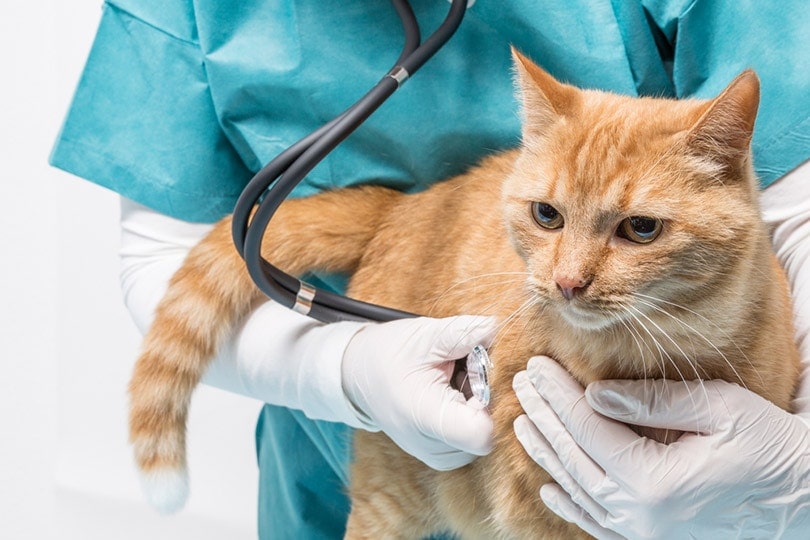How Does a Cat Perceive Time? What The Science Tells Us
Updated on

If you’re a busy pet owner who must leave their cat home alone for long periods, you might have comforted yourself with the common belief that animals can’t tell time. But you may question that belief when your cat wakes you up at the same (early) hour every morning for breakfast! So how does a cat perceive time?
While there hasn’t been much cat-specific research on the subject, scientists believe that cats can tell that time is passing and distinguish between lengths of time. They can probably also remember events that happened in the past, although it’s unclear how far back. Keep reading to learn more about how cats can (sort of) tell time and how they know to keep waking you up so early!
How Cats Understand Time
Sorry to disappoint the busy pet owner from our introduction, but your cat is likely aware that you’ve been gone for hours. A 2018 study1 concluded that animals could tell the difference between time intervals. For example, if you typically come home and feed your cat at 5 pm but don’t make it home until 8 pm one evening, your cat can tell the difference.
Because your cat can’t read a clock, how can they tell that you’ve been gone too long? One explanation is that cats are creatures of habit and routine. They learn to associate certain external or environmental cues with the time of day they occur, so when something disrupts that rhythm, they know you’re late.
Like humans, cats are also governed by biological clocks like the Circadian rhythm that helps them perceive time. A separate study from 20172 also suggests that cats can form memories attached to specific moments in time, called “episodic memory.” This ability is another indicator that cats have a sense of the passage of time and can distinguish between something that happened in the past and the present.
How Cats “See” Time

A 2013 study examined how long it took over 30 animal species to process visual information, meaning how long it took them to “see” time. The researchers found that the smaller the creature, the faster it processed information and the slower time seemed to move. For example, insects like flies see the world in slow motion, allowing them to dodge predators and fly swatters.
This skill allows the tiniest creatures one more way to survive in a world where everything is larger and most creatures want to kill them. The study found that some predators also see time slowly, likely giving them an advantage when hunting. However, cats are not one of them, as they see time only slightly more slowly than humans.
Okay, How Do I Stop My Cat from Waking Me Up So Early?
As we’ve learned, cats rely on external and internal cues to tell them when it’s time to start pestering you for breakfast. You can’t do much about your cat’s internal clock, but you could try to break some of their external time clues, such as an automatic coffee pot that starts 30 minutes before you wake up. In addition, your cat might continue to wake you up because they get “rewarded” with food when you do.
If you’re patient enough to train your cat out of its behavior, it may leave you alone if you ignore its insistence on an early breakfast long enough. If not, consider investing in a timed, automatic feeder.
Conclusion
Yes, your cat can tell how long you’ve been gone, but that doesn’t mean you must feel guilty about it. Ensure your cat has plenty of toys, scratching objects, and other ways to stay busy and entertained while you’re gone. When you are home, give your cat plenty of time and attention.
If you feel your cat would benefit from more human company, consider hiring a pet sitter to drop in or ask a friend to cuddle with your kitty while you’re at work or school. Like dogs, cats can develop separation anxiety, so if you notice behavioral changes, such as inappropriate urination, talk to your veterinarian.
Featured Image Credit: Borkin Vadim, Shutterstock











